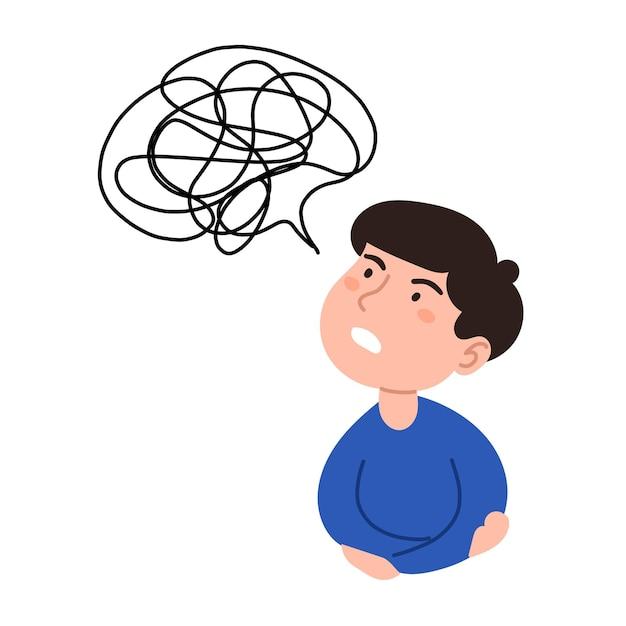Each day, we come across countless pieces of information and ideas, whether it’s through conversations, articles, or social media. In a world where information is readily available at our fingertips, it becomes crucial to approach these ideas critically. But what exactly does it mean to be a critical thinker? How do you assess critical thinking? And why is it so important in today’s rapidly changing society?
In this blog post, we will explore the concept of critical thinking and what sets a critical thinker apart from an uncritical thinker. We will delve into the philosophy behind critical thinking and discuss the challenges and difficulties that arise when trying to think critically. Additionally, we will unravel the eight important questions that can help guide our critical thinking process.
So, if you’re ready to enhance your intellectual abilities and become a more discerning and analytical thinker, let’s dive into the world of critical thinking and unlock the secrets to independent and mindful thought.

What Makes a Person a Critical Thinker
Critical thinking is a valuable skill that helps individuals navigate the complexities of life and make well-informed decisions. But what exactly makes someone a critical thinker? Well, let’s dive into the characteristics that set apart these intellectual superheroes.
Curiosity: The Prime Ingredient for Critical Thinkers
Curiosity is like the secret sauce that sets critical thinkers apart from the rest. They possess an insatiable hunger for knowledge and constantly question the world around them. They’re the ones who wonder why the sky is blue or why certain phenomena occur, rather than simply accepting things at face value. Their relentless pursuit of answers fuels their critical thinking skills.
Open-Mindedness: Embracing the Unexpected
Critical thinkers approach new ideas or information with an open mind. They don’t let preconceived notions or biases cloud their judgment. Instead, they welcome diverse perspectives and actively seek out different viewpoints. This open-mindedness allows them to analyze situations from multiple angles, avoiding narrow thinking and increasing their ability to make reasoned decisions.
Analytical Skills: Unleashing the Inner Sherlock Holmes
Critical thinkers possess a keen eye for detail and are masterful at analyzing information. They can dissect complex problems, break them down into manageable pieces, and make sense of the puzzle. Armed with strong analytical skills, they’re like super sleuths, delving deep into the heart of a matter to unravel its intricacies and uncover the truth.
Logic and Reasoning: The Captain and First Mate of Critical Thinking
Logic and reasoning are the trusty companions of critical thinkers. They use these tools to navigate the treacherous waters of decision-making. With clear and structured thinking, they can distinguish between valid arguments and fallacies, making sound judgments based on evidence and logical deductions. And just like a captain and first mate, logic and reasoning work hand in hand to steer critical thinkers towards rational conclusions.
Problem Solving: The Heroic Superpower of Critical Thinkers
When challenges arise, critical thinkers don their capes and unleash their problem-solving skills. They approach problems systematically, identifying the root causes, brainstorming creative solutions, and evaluating the best course of action. Their ability to think critically allows them to overcome obstacles with ease, transforming them into problem-solving superheroes.
Reflection: The Pause Button for Critical Thinkers
Critical thinkers understand the importance of pausing, reflecting, and learning from their experiences. By taking a moment to analyze their own thinking processes and outcomes, they can refine their approach and make continuous improvements. This self-reflection helps them grow as critical thinkers, fine-tuning their skills and ensuring they remain at the top of their game.
Wrapping Up the Wonders of Critical Thinking
Becoming a critical thinker isn’t an overnight transformation; it’s a lifelong journey. By embracing curiosity, open-mindedness, analytical skills, logic and reasoning, problem-solving abilities, and the power of reflection, individuals can nurture their critical thinking superpowers. So, whether you’re facing everyday decisions or tackling complex challenges, let the spirit of critical thinking guide you towards becoming the hero of your own intellectual universe.

FAQ: What Makes a Person a Critical Thinker
Welcome to our FAQ section on critical thinking! Here, we’ll address all your burning questions about what it takes to be a critical thinker. So put on your thinking caps and let’s dive right in!
How Can You Assess Critical Thinking
Assessing critical thinking is no easy task, but there are a few ways you can gauge someone’s critical thinking skills. Look for individuals who can analyze information objectively, question assumptions, weigh evidence, and consider different perspectives. It’s like finding a unicorn in a haystack, but hey, they do exist!
What Sets a Critical Thinker Apart
Ah, the age-old question! A critical thinker is like a superhero of the mind. They possess a special power to question everything, from the validity of arguments to the reliability of sources. They don’t settle for superficial answers but strive to dig deeper and challenge the status quo. It’s like having a mental bulldozer that clears away fallacies and leaves only the truth standing tall.
What’s the Difference Between a Critical Thinker and an Uncritical Thinker
Picture this: A critical thinker is like a wise old owl, perched high in a tree, observing and contemplating. Meanwhile, an uncritical thinker is more like a squirrel, jumping from one thought to another without much reflection. While critical thinkers carefully examine information and consider different viewpoints, uncritical thinkers tend to accept things at face value without much scrutiny.
What’s the Philosophy Behind Critical Thinking
The philosophy of critical thinking suggests that knowledge is not a buffet where you mindlessly pile up beliefs. Instead, it’s a journey where you question, analyze, and assess every dish before deciding what makes it to your plate. It’s like being a picky eater, but for ideas and arguments!
Why is Critical Thinking So Darn Difficult
If critical thinking were a piece of cake, everyone would be doing it, right? Well, here’s the scoop: critical thinking is hard because it requires effort and mental gymnastics. It’s like deciding to climb Mount Everest while wearing flip-flops. It demands time, patience, and a willingness to confront uncomfortable truths. So buckle up and get ready for the intellectual roller coaster!
What Are the Eight Critical Thinking Questions
Now, get ready to be blown away by the eight critical thinking questions that will rock your world! These babies will guide you on your quest for truth, helping you navigate through a sea of misconceptions. Here they are:
- What assumptions am I making?
- Are there any fallacies in the reasoning?
- What evidence supports this claim?
- Are there any counterarguments to consider?
- What are the implications and consequences?
- Is there any other plausible explanation?
What’s the Difference Between Critical Reading and Critical Thinking
Think of critical reading as a fancy cousin of critical thinking. While critical thinking is about evaluating and analyzing information, critical reading focuses on examining written materials with a discerning eye. It’s like reading a detective novel, searching for clues, and piecing together the puzzle of meaning.
How Can You Demonstrate Critical Thinking in Writing
Oh, the art of demonstrating critical thinking in writing! It’s like a high-wire act where you balance logic and creativity with finesse. To showcase your critical thinking prowess, you must craft well-reasoned arguments, consider opposing viewpoints, and support your claims with solid evidence. It’s like being a lawyer defending your case, but instead of a courtroom, you’re in the arena of words!
What Are the Eight Steps of Critical Thinking
Buckle up, folks! We’re about to reveal the eight steps to critical thinking that will turn you into a certified genius:
- What is the problem or question at hand?
- What information do we have, and what do we need?
- What are the different perspectives on this issue?
- What assumptions are we making?
- What evidence do we have, and how reliable is it?
- What are the implications and consequences of each option?
- Can we come up with alternative solutions?
- What is the most reasonable and fair conclusion?
And there you have it, folks! Your ultimate guide to understanding what it takes to be a critical thinker. So go forth and sharpen those mental knives, for the world needs more thinkers who question, challenge, and seek the truth, one critical thought at a time!
